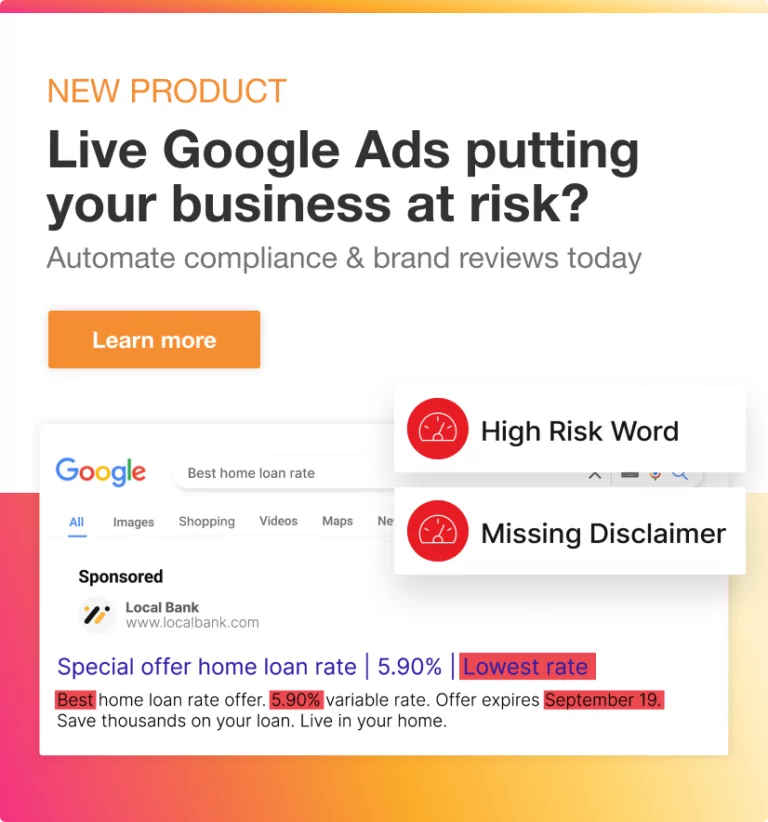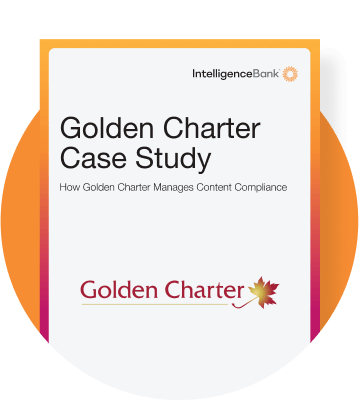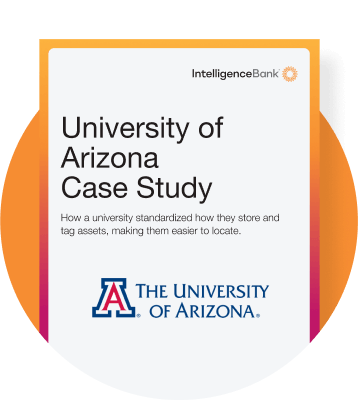For healthcare insurance marketers, compliance is not just a best practice – it’s a legal necessity. In the U.S, Medicare providers and those marketers targeting seniors must adhere to the Centers for Medicare & Medicaid Services’ (CMS) Medicare Communications and Marketing Guidelines (MCMG). These guidelines ensure that marketing materials are accurate, transparent, and non-misleading, protecting both seniors and healthcare organizations.
However, ensuring compliance with these regulations can be a daunting task. There are a myriad of complex rules that make manually reviewing every piece of marketing content time-consuming and prone to human error. This is where automation and AI-powered marketing compliance review software come into play – and more specifically, why pre-built industry-specific compliance review packages are a game-changer for healthcare marketers.
In this piece, we touch on the key elements of the MCMG rules, who they apply to, what makes compliance challenging, and how automating compliance checks with industry specific rule packages can help. We’ll also provide insight into the types of rules that can be scanned, giving you a picture of how you can streamline your compliance efforts.
Disclaimer: This document is not intended as a substitute for legal advice. This report has been prepared using both public and private data by IntelligenceBank, a provider of software that helps companies stay on brand and adhere to regulatory compliance. Companies should seek professional legal and regulatory advice when establishing internal compliance protocols.
What are the Medicare Communications and Marketing Guidelines (MCMG)?
The MCMG is a set of rules established by CMS to regulate how Medicare providers and their marketing partners communicate with beneficiaries, particularly seniors.
These guidelines are designed to ensure that all marketing materials are clear, accurate, and not misleading.
The MCMG covers a wide range of communication channels, including:
- Advertisements (TV, radio, online, and print)
- Direct mail and email campaigns
- Websites and social media content
- Scripts used by sales agents during phone calls or in-person meetings
The guidelines are rooted in federal legislation, including the Social Security Act and the Medicare Modernization Act, and are enforced to protect seniors from misleading or fraudulent marketing practices.
Who do the MCMG Rules Apply to?
The MCMG rules apply to a broad range of entities involved in Medicare-related marketing, including:
- Medicare Advantage (MA) plans:
Private insurance companies that offer Medicare-approved plans. - Part D prescription drug plans:
Providers offering prescription drug coverage under Medicare. - Brokers and agents:
Individuals or organizations that sell Medicare plans on behalf of insurance providers. - Marketing agencies:
Third-party firms creating and distributing marketing materials for Medicare providers.
If your organization falls into any of these categories, compliance with the MCMG is mandatory, and there are tough penalties for bucking the system.
Challenges Upholding MCMG Rules
While the importance of compliance is clear, achieving it is often easier said than done. Here are some of the key challenges marketers face:
- Complex and Evolving Regulations
The MCMG can be complex enough, but it’s just one piece of the larger puzzle healthcare marketers need to fall in line with. Medicare providers must also comply with other state and federal laws, such as HIPAA and the Telephone Consumer Protection Act (TCPA). These regulations are subject to frequent updates, making it difficult for marketers to stay current.
High Volume of Content
Healthcare marketers produce an enormous amount of content across multiple channels – think ads, brochures, SEO content, web pages, case studies, infographics, socials, videos, product information guides, annual reports – the list goes on. Generative AI has helped meet the demand over the last 12 months, but it has inadvertently created a problem for compliance reviewers. Manually reviewing each piece for compliance in a timely manner has become an almost impossible task which can lead to corners being cut or deadlines being missed.
Subjectivity in Interpretation
Some MCMG rules are open to interpretation. For example, what constitutes ‘misleading’ language can vary depending on the reviewer. This subjectivity can lead to inconsistencies in compliance checks.
Pressure to Meet Deadlines
Digital marketing is taking up an increasing slice of the media spend across most industries these days. The nature of the medium often calls for fast production turnaround times that can put the compliance review process at risk.
What are the Penalties for not Complying with MCMG Rules?
In August 2022 the Senate Finance Committee Majority Staff launched an inquiry into marketing complaints from 14 states and found evidence that beneficiaries were being inundated with aggressive marketing tactics as well as false and misleading information.
Marketing compliance is high stakes as the financial repercussions for non-compliance with MCMG rules are harsh. One high profile example of just how harsh is the Cigna Group. In 2022, the Centers for Medicare & Medicaid Services (CMS) imposed a $172 million penalty on Cigna for alleged misconduct related to Medicare Advantage plans. The violations included misleading marketing practices and improper denials of care to beneficiaries.
In addition to monetary penalties, CMS may also impose other penalties on non-compliant agents, including:
- Suspension of marketing activities
- Suspension or termination of agent contracts
- Revocation of Medicare Advantage or Part D plan sponsor status
- Exclusion from participating in federal health care programs
- Legal action and criminal prosecution for fraud or abuse
Can MCMG Marketing Compliance be Automated?
Yes, automating compliance reviews with software tailored to comply with MCMG legislation saves your team time, reduces the risk of human error, and ensures a consistent interpretation of the law. The IntelligenceBank platform uses AI to review marketing content against a comprehensive list of MCMG rules, flagging potential issues before they become problems.
Here’s how it works:
- Create Risk Rules: Pre-built rule lists are used to make it easier for healthcare marketers and compliance teams to identify content that breaches MCMG code. While already catering specifically to these requirements, it can also be customized to include other regulatory or proprietary requirements your firm may have.
- Automatically Review Content: Marketing content is automatically reviewed. The platform uses AI-powered technology to see if any of these rules have been breached in your content, (e.g. collateral, digital ads, social media etc.). Reviews can be done at any stage in the production cycle – even when content is already live. The platform provides you with feedback and suggestions for improvement.
- Keep a Record: The platform automatically maintains records of all comments made on PDFs, artwork and images etc. so they can easily be referred to down the line.
Automated compliance review software can either be configured from scratch to meet the unique needs of your business, or, be delivered via a package with rules set up specifically for a range of highly regulated industries. When operating in a clearly defined industry such as banking, it makes sense to start with a package that has been tailored to the corresponding legislation.
Benefits of Automating Reviews for MCMG Compliance
Industry-specific platforms quickly review marketing materials against CMS/MCMG’s mandatory requirements and flags potential issues. While human oversight and judgment remain essential for nuanced cases, AI can take care of the basic, binary rules mandated by the legislation.
In fact, amalgamated IntelligenceBank research for clients shows that over 75% of comments on marketing content made by Legal or Compliance teams relates to errors such as incorrect claims, and missing or incorrect disclaimers. They are the type of comments that AI can deal with on the spot and lift a large part of the burden for Compliance teams. Here is a snapshot of of the results:
- 17% of comments relate to brand compliance issues: These focused on things like brand name usage, logo issues, font sizes, tone, and readability.
- 38% of comments relate to legal and compliance issues: Common concerns included outdated disclaimers, inaccurate claims, missing disclosures, and specific legal language requests.
- 22% of comments are about wording: This includes phrasing issues around claims and product disclosures, rather than basic spelling and grammar.
- 23% of comments required direct human intervention, where nuance or specific context was needed.
In fact, it is possible to see how automating compliance content reviews can help save valuable time and deliver exceptional Return on Investment (ROI). Predicted outcomes can be estimated using the Content and Web Risk Reviews Cost Savings Calculator.
Also, since AI reviews can handle large volumes of content, it becomes far easier for organizations to keep up with the growing demand for marketing materials. This scalability ensures that compliance doesn’t become a bottleneck, allowing teams to focus on more strategic tasks.
Beyond speed, AI-powered compliance solutions also help reduce human bias in the review process that can lead to inconsistencies. AI applies the same standardized checks across all materials, ensuring greater uniformity and reducing the likelihood of subjective errors.
Marketers that have adopted AI-driven compliance tools report a marked reduction in manual review time and a faster go-to-market process.
And as they are regularly updated with newly released regulations, it is easier for marketers to keep up with changes.
Simplified MCMG Compliance Checklist
IntelligenceBank’s MCMG package is based on 67 best practice rules covering key legislation applicable to CMS and MCMG. While this isn’t an exhaustive list, it covers some of the most important points to keep in mind:
- Required Disclosures
Verifying that all required disclosures (e.g., plan limitations, costs) are present and prominently displayed. - Disclaimers
Ensure all disclaimers such as those clarifying Out of Network Non-Contracted Providers, NCQA SNP Approval Statement and gifts and prize draw parameters are transparent.
- Comparative Claims
Ensuring that any savings comparisons between plans or providers are fair, accurate, and supported by evidence. - Recommendations, Endorsements and Testimonials
Ensure your recommendations are supported by adequate information and there is no implied endorsement by any government agency
- Discriminatory Practices
Clarifying that your message does not imply that a plan is targeting potential enrollees based on income status.
- References
Make sure hyperlinks to plans include the date it was last updated. - Star Rating
Checks star rating range, year and service area are correct.
By automating these checks, marketers can ensure that their materials comply with the MCMG and other applicable regulations.
Get the complete list with IntelligenceBank industry-specific risk reviews.
Why Existing Rule Lists Work
For many healthcare marketers, building a compliance review system from scratch is not feasible. It requires significant investment in time and budget as well as ongoing maintenance. An industry based solution gets teams up and running far faster than building a system from the ground up – often reducing deployment time from weeks to days. And best of all, it can be customized to meet your company’s own additional rules.
Furthermore, it has the ability to click into a wider marketing operations workflow that traffics the creation, approvals, distribution and storage of content and supporting documents.
Compliance is the backbone of healthcare marketing. It protects clients, business and reputation. By leveraging industry-ready marketing compliance review software, you can streamline your compliance efforts, reduce risk, and focus on what really matters—connecting with your audience. If you’d like to find out more, please get in touch.




